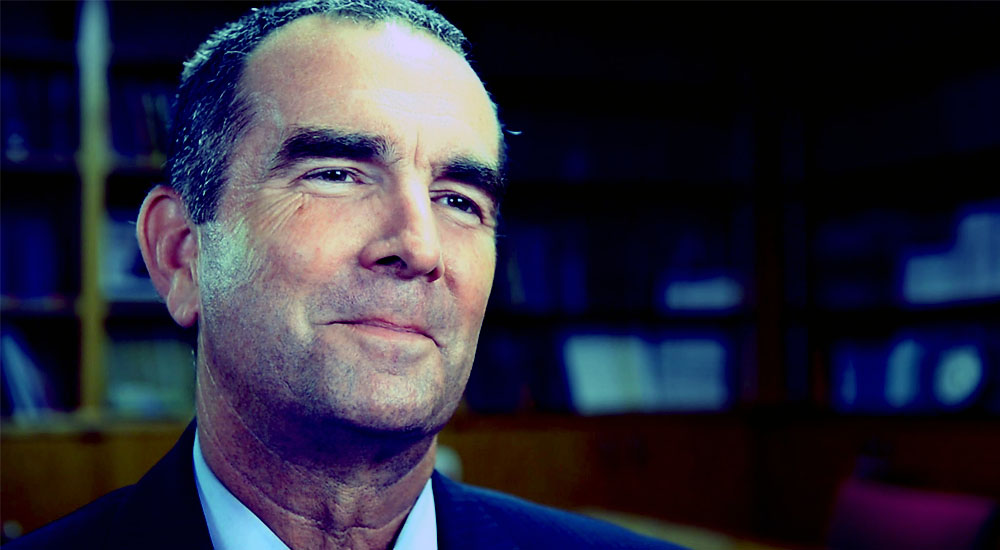Is it OK if I say that the Roanoke Times is quickly becoming one of my favorite Virginia publications?
Strike that.
Too often, folks hear the word “favorite” and they think “agreement” — if one were looking for that, my ears are perhaps more attuned to the editorial pages of the Richmond Times-Dispatch. Yet the editors and journalists (not mere writers) of the Roanoke Times are three steps to my left, but thoughfully so.
That’s what separates the RT (Virginia’s RT, not the Russian version) from the pack. Not a camp of ideologues, but the realists of the left.
So when they issue the lament that Democratic gubernatorial nominee Ralph Northam has effectively abandoned rural Virginia, that resonates with the calculus most objective observers have been witnessing for months — not because of the cold math, but just because it is flat out true:
This year, though, marks a break from that long-standing tradition. The three Democratic candidates seeking statewide office will be in Buena Vista for their party’s breakfast — then will fly off to Hampton for another event at 11 a.m. Ralph Northam, Justin Fairfax and Mark Herring will not walk the parade route shaking hands. They will not give speeches in the park.
From the cold logic of political mathematics, this makes sense. Democrats will find a lot more votes in Hampton than in Buena Vista. That’s always been true, but is especially true now that Buena Vista, like many other communities in rural Virginia, has voted increasingly Republican over the past decade. (Buena Vista last went Democratic in a governor’s race in 2005.)
Still, this seems sad — the diminishment of a local tradition. If only one party is speaking in the park, it’s not really a community event any more; it’s just another partisan event.
There’s a particular lament here that Republicans share when our campaigns ignore places such as Northern Virginia (a mistake Republican gubernatorial nominee Ed Gillespie did not make in 2014 nor 2017) and black communities in Southside Virginia (a mistake Gillespie’s staff did make in 2014 and is not repeating in 2017). Former Republican Rep. Jack Kemp used to defy those odds in urban minority communities and carry a stronger message of entrepreneurship with a simple challenge: if what is working for you now is working, then fine; but if what is working now isn’t working for your communities, try out the Republican Party — and if we stop working for you, throw us out.
Northam has thus far dutifully bent the knee to each and every Progressive pet issue save one — the pipeline.
Tom Perriello locked into this strategy when he initially appealed to rural conservative Democrats, first in his congressional run in 2008 and in the first few weeks of his 2017 gubernatorial bid. That is, before Perriello shifted to a much more weaponized brand of progressive politics that appealed to urbanized Northern Virginia liberals.
Nowhere was this appeal more tone deaf — and for Northam, more problematic — than when Perriello turned the Atlantic Coast Pipeline into the progressive version of Confederate war memorials.
Thus far, Northam has literally pushed himself out of his skin to try to appeal to the progressive left; folks who have learned all the wrong lessons about the Tea Party.
Inflexible and intransigent, they demand orthodoxy on every front: abortion, right to work laws, a $15 minimum wage, weakening school choice and charter schools, offshore drilling, sanctuary cities, and the bulldozing of history writ large.
Northam has thus far dutifully bent the knee to each and every progressive pet issue save one — the pipeline.
Not every bend of the knee served Northam well. On Confederate memorials, Northam and McAuliffe both believed their own hearts and ignored their head by reversing themselves on the more pragmatic local option in favor of a “repeal and replace” mantra on Confederate memorials.
Then the numbers came in, and Republicans pounced with rapture. With almost 3 to 1 margins opposed to the bulldozing of history, Republicans conjoined Antifa lawlessness with historical relevance and the result is that Gillespie emerged from the sultry August political climate not just intact, but in better form than when he entered.
In short, the Republicans are united on the rule of law against the extremes while the Democrats are engaged in a querulous posturing between anti-pipeline rural Democrats and their suburban environmentalist supporters — more divided than ever after an August that delivered just about every political advantage they could have hoped for.
Of course, the Atlantic Coast Pipeline is here to stay. Short of a Herculean effort by Governor McAuliffe (which is in the cards, but distantly) to upend the project, there is no stopping this train, not just because it’s what the General Assembly wants but because it is what Hampton Roads requires in order to grow the Port of Virginia into a truly international port of call.
Northam knows this, but cannot compel himself to stand on the hill and die on it in the name of political realism — a realism that separated Northam from his colleagues, but for political realities is forcing him to leave behind in order to shimmy into the progressive straightjacket.
If there’s one thing that Virginians can detect, it is a candidate who isn’t running as themselves. Authenticity matters in politics, and Northam twin problems of distancing himself from his erstwhile rural base while attempting a personality transplant is the soulless attempt by Democratic operatives to turn Northam into Perriello — a metamorphosis that is more soft coup than authentic.
September kicks off the official campaign season, and it finds Northam on his back foot and separated from the Virginia whose values and heritage made him unique.
Alternatively, Gillespie continues to quietly hammer home one solution after another — bold on the edges, but the slow sort of reform that sets up his erstwhile successor for further gains.
If such an approach looks strange, it’s because Gillespie is exuding that quality known as leadership.
Among governors who have used the Governor’s Mansion as a springboard to higher office, leadership is a quality Virginians haven’t had for a long time. As Northam continues to quell and mollify the progressives to his left, he is running out of time to produce a bold and sober political reality that can answer why Northam wants to be governor.







